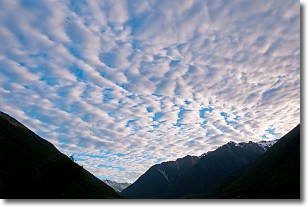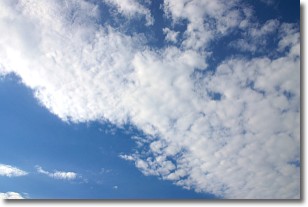Weather Alert in New Mexico
Fire Weather Watch issued May 13 at 4:27AM MDT until May 14 at 9:00PM MDT by NWS Albuquerque NM
AREAS AFFECTED: West Central Mountains; Middle Rio Grande Valley; West Central Basin and Range; Sandia and Manzano Mountains
DESCRIPTION: ...RED FLAG WARNING IN EFFECT TODAY FROM 11 AM TO 9 PM FOR THE NORTHWEST PLATEAU; WEST CENTRAL MOUNTAINS, BASIN, AND RANGE; MIDDLE RIO GRANDE VALLEY; AND THE SANDIA AND MANZANO MOUNTAINS DUE TO STRONG WIND AND LOW HUMIDITY... ...FIRE WEATHER WATCH IN EFFECT WEDNESDAY FROM 11 AM TO 9 PM FOR THE NORTHWEST PLATEAU; WEST CENTRAL MOUNTAINS, BASIN, AND RANGE; MIDDLE RIO GRANDE VALLEY; AND THE SANDIA AND MANZANO MOUNTAINS DUE TO STRONG WIND AND LOW HUMIDITY... .Strong winds and very low humidity are expected today and Wednesday as an upper level trough passing north of New Mexico steers the jetstream over the state. Updated forecasts indicate high fire danger will continue to spread, so the Red Flag Warning and Fire Weather Watch have been expanded to include the Northwest Plateau and all of the Sandia and Manzano Mountains. The most critical fire weather conditions are expected today, when winds will be the strongest and the high temperature will climb as much as much as 10 degrees above average. Wind speeds will weaken some on Wednesday and temperatures will fall up to 8 degrees compared to today, but strong instability will persist and there will only be a modest decrease in mixed layer depth on Wednesday. * AREA AND TIMING...West Central Mountains, Basin, and Range (Zones 105 and 109), Middle Rio Grande Valley (ZONE 106), and the Sandia and Manzano Mountains (Zone 104) today and Wednesday from 11 AM to 9 PM. * 20 FOOT WINDS...For today, southwest and west 25 to 35 mph with gusts up to 50 mph. For Wednesday, southwest and west 20 to 30 mph with gusts up to 40 mph, except up to 45 mph on the peaks of the West Central Basin and Range. * RELATIVE HUMIDITY...For Tuesday, 9 to 14 percent. For Wednesday, 9 to 15 percent. * IMPACTS...Any fires that develop will likely spread rapidly. Outdoor burning is not recommended.
INSTRUCTION: Please advise the appropriate officials or fire crews in the field of this Red Flag Warning. Please advise the appropriate officials or fire crews in the field of this Fire Weather Watch.
Want more detail? Get the Complete 7 Day and Night Detailed Forecast!
Current U.S. National Radar--Current
The Current National Weather Radar is shown below with a UTC Time (subtract 5 hours from UTC to get Eastern Time).

National Weather Forecast--Current
The Current National Weather Forecast and National Weather Map are shown below.

National Weather Forecast for Tomorrow
Tomorrow National Weather Forecast and Tomorrow National Weather Map are show below.

North America Water Vapor (Moisture)
This map shows recent moisture content over North America. Bright and colored areas show high moisture (ie, clouds); brown indicates very little moisture present; black indicates no moisture.

Weather Topic: What are Stratus Clouds?
Home - Education - Cloud Types - Stratus Clouds
 Next Topic: Wall Clouds
Next Topic: Wall Clouds
Stratus clouds are similar to altostratus clouds, but form at a
lower altitude and are identified by their fog-like appearance, lacking the
distinguishing features of most clouds.
Stratus clouds are wider than most clouds, and their base has a smooth, uniform
look which is lighter in color than a nimbostratus cloud.
The presence of a stratus cloud indicates the possibility of minor precipitation,
such as drizzle, but heavier precipitation does not typically arrive in the form
of a stratus cloud.
Next Topic: Wall Clouds
Weather Topic: What are Altocumulus Clouds?
Home - Education - Cloud Types - Altocumulus Clouds
 Next Topic: Altostratus Clouds
Next Topic: Altostratus Clouds
Similar to cirrocumulus clouds, altocumulus clouds are
characterized by cloud patches. They are distinguished by larger cloudlets
than cirrocumulus clouds but are still smaller than stratocumulus clouds.
Altocumulus clouds most commonly form in middle altitudes (between 2 and 5 km)
and may resemble, at times, the shape of a flying saucer.
These uncommon formations, called altocumulus lenticularis, are created by uplift
in the atmosphere and are most often seen in close proximity to mountains.
Next Topic: Altostratus Clouds
Current conditions powered by WeatherAPI.com




